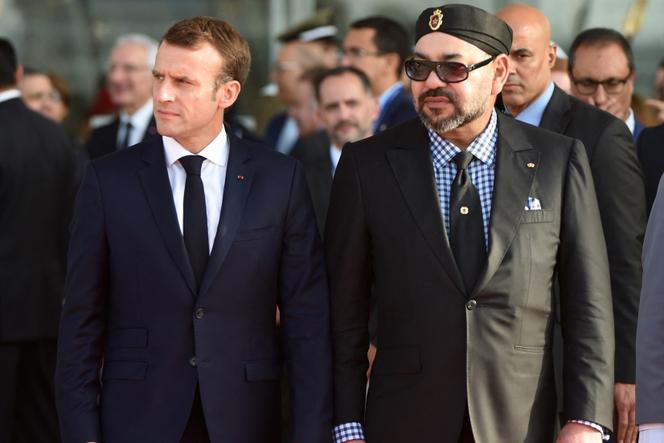


Is the permafrost melting between Paris and Rabat? On both sides, the signs of the end of a long winter are mounting, heralding a period of warming in Franco-Moroccan relations, which have been subjected to freezing temperatures for two years. The choice of Samira Sitail as the kingdom's ambassador to Paris was approved on October 19 by the king of Morocco. Her official assumption of office is still some way off, but her appointment gives a face to a diplomatic position that has been unoccupied since January of this year. Two weeks before, Mohammed VI finally accredited France's ambassador to Rabat, Christophe Lecourtier, who had presented him with his credentials after his appointment almost a year ago.
In parallel with this diplomatic normalization, meetings between officials from the two countries have increased, again testifying to a desire to resume relations. In October, French Economy Minister Bruno Le Maire held talks in Marrakech with his Moroccan counterpart and Prime Minister Aziz Akhannouch. And the chief executive of the French Development Agency, Rémy Rioux, was received in Rabat in November by Moroccan Foreign Affairs Minister Nasser Bourita.
But the thaw promises to be slow and gradual. "We're proceeding cautiously, without triumphalism, and remaining modest," explained the French embassy in Rabat, where they said that exchanges with senior Moroccan officials have never ceased and that regular consultations take place between both parties on a number of subjects. On the Moroccan side, discretion, which was still the order of the day in recent months, has disappeared in favor of an assertive display. What had been quiet exchanges with French decision-makers and representatives have been replaced by meetings that are now the subject of press releases in the Moroccan media.
While this is proof of a return to normality, the French side insists that this resumption also requires a change of strategy. "We thought we could continue with Morocco as we have done for the past 30 years, but that's no longer possible," admitted the embassy, lamenting a form of "arrogance" and "errors of judgment."
Among them is a video of Emmanuel Macron posted on Twitter a few days after the earthquake that struck the Marrakech region in September, killing 3,000 people. In it, the French president said he wanted to speak "directly to Moroccan men and women." The Moroccan press criticized the French president for "stepping over" the king.
This controversy came on the heels of the debate in France about sending humanitarian aid, which Rabat had flatly refused. It led "to a realization in Paris," said an official French source, pointing out that the warming of relations could have taken place as early as July. "But the earthquake brought the positive momentum that had begun to build to a sudden halt."
You have 60% of this article left to read. The rest is for subscribers only.
